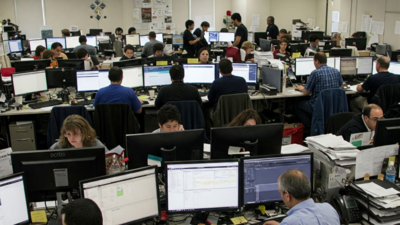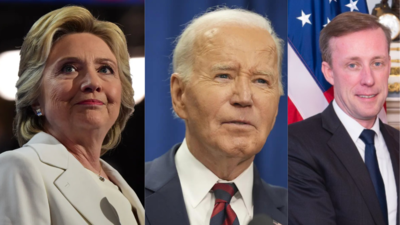No toilet paper, privacy, or parking: Federal workers’ rough return to office

As federal workers in US return to work in phases after President Donald Trump’s swearing-in, some of them were sent back home as their offices lacked basic necessities like toilet paper, parking space, chair, food and even privacy.
Nearly 1 million employees who had been working remotely or in hybrid roles have had to adapt to overcrowded office spaces and resource shortages. With the civilian federal workforce estimated at 2.3 million at the beginning of the year, the administration’s sweeping return-to-office mandate continues to fuel discontent across multiple agencies, according to a report in the New York Times.
At the federal aviation administration, employees returned to offices where lead had been detected in the water, raising health concerns.
More efficient?
Trump had said: “We think a very substantial number of people will not show up to work, and therefore our government will get smaller and more efficient.”
The ground reality, however, looks quite the opposite.
The chaotic and poorly coordinated transition has led to confusion, low morale, and inefficiency. Interviews with dozens of workers—most speaking anonymously for fear of job repercussions—highlight widespread logistical issues, including cramped conditions and shortages of basic supplies.
“Drive to Corporate Square and sit in the overflow space in Building 11,” a sign post at Centers for Disease Control and Prevention in Atlanta read.
When food and drug administration employees returned to the White Oak campus on March 17, they were met with overcrowded parking and long security lines stretching around the block.
Inside, restrooms quickly ran out of toilet paper and paper towels, the cafeteria was understocked, and office supplies were in short supply—just a few of the many logistical issues.
Adding to the challenges, a scientist hired for a remote position now has to share office space while working on sensitive and proprietary projects, raising ethical and practical concerns about confidentiality and efficiency.
Elon Musk’s overhaul of the federal workforce, including mass firings, rehirings, court-ordered reinstatements, and spending freezes, has caused widespread disruption. Despite being led by the department of government efficiency, employees argue the Trump administration’s approach has been anything but efficient.







